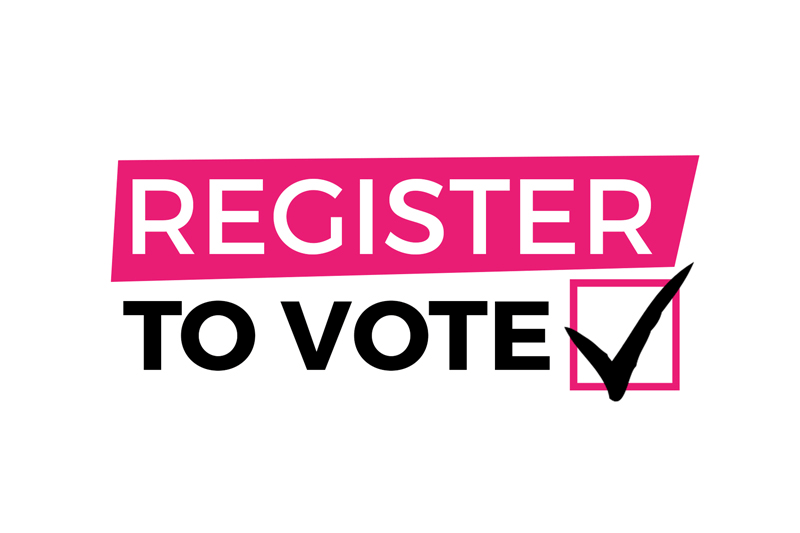As the cost of living crisis continues to escalate, there has been a noticeable surge in the demand for credit, accompanied by a rise in the number of individuals checking their credit scores.
In these challenging times, it is crucial to comprehend how credit scores function and how to improve your creditworthiness. By doing so, you can increase the likelihood of being granted credit with the most favourable interest rates.
If you’ve faced rejection for credit applications or worry that your credit history might hinder your ability to secure a mortgage, credit card, or loan, don’t lose hope. There are measures you can undertake to boost your credit rating.
An unfavourable credit rating can significantly impact your borrowing capabilities, as lenders recognise you as financially unreliable. This could result in missing out on the best deals for credit cards, loans, mortgages, or mobile phone contracts, or even complete rejection in some instances.
While enhancing your rating often involves implementing numerous changes over an extended period, there are also some immediate actions you can take that will positively influence your score.
If your credit score is not as high as you would prefer, there might be swift ways to improve it. Depending on the factors causing the low score, you could potentially add up to 100 points relatively quickly.
Scores in the “fair” and “bad” regions of the credit score spectrum may witness dramatic improvements.
What constitutes a good credit score?
There is no universal credit ‘rating’ or ‘score’ that lenders use when determining whether to approve you as a customer. Similarly, there is no such thing as a ‘credit blacklist’.
Credit scores advertised by credit reference agencies (CRAs) like Experian are merely indicators of your creditworthiness, based on the information in your credit report.
Each of the three main credit reference agencies in the UK has its own scale for what it deems a ‘good’ or ‘excellent’ credit score.
- Equifax: 531 to 670 is good, while 811 to 1,000 is excellent
- Experian: 881 to 960 is good, and 961 to 999 is excellent
- TransUnion: 604 to 627 is good, while 628 to 710 is excellent
Although having a ‘good’ or ‘excellent’ credit score can be beneficial, it doesn’t guarantee that all lenders will grant you credit or treat you equally. Each lender has its own system for deciding whether to lend to you so that you may be rejected by one and accepted by another.
If you have a low or ‘bad’ credit score, you are more likely to be turned down when applying for credit or offered less favourable interest rates. In such cases, it is essential to take steps to improve your score.
If you’re grappling with a low credit score, you have a better chance of making rapid improvements than someone with an already strong credit history.
Is it possible to increase your score by 100 points? Rod Griffin, Experian’s Senior Director of Public Education and Advocacy, says it is. “The lower a person’s score, the more likely they are to achieve a 100-point increase. That’s because there’s much more potential for improvement, and minor changes can result in greater score increases.”
In this comprehensive guide, you’ll learn the components of a good credit score, following helpful tips that will help you to boost your credit rating, and insights into the timeframe for potential changes.

Here are some tactics to enhance your credit swiftly:
Strategically pay off credit card balances
Your credit utilization refers to the percentage of your credit limits being used at any given moment. Aim to use less than 30% of your limit on each card; the lower, the better. Top scorers use less than 7%. (Monitor your credit utilization for each card and overall by viewing your credit score profile with NerdWallet.)
Ensure your balance is low when your card issuer reports it to credit bureaus, as this affects your score calculation. A simple approach is to pay down the balance before the billing cycle ends or make multiple payments throughout the month to maintain a low balance.
Impact: Highly influential. Credit utilization is the second-largest factor in your credit score, with on-time payments being the most significant.
Time commitment: Low to medium. Set calendar reminders to log in and make payments. You can also add alerts to your credit card accounts to notify you when your balance reaches a certain amount.
How fast it could work: Quickly. As soon as your credit card reports a lower balance to credit bureaus, that reduced utilization will factor into your score.
Request higher credit limits
If your credit limit increases while your balance remains constant, it immediately reduces your overall credit utilization, improving your credit. If your income has increased or you’ve gained more years of positive credit experience, you have a good chance of obtaining a higher limit.
Impact: Highly influential, as utilization plays a significant role in credit scores.
Time commitment: Low. Contact your credit card issuer to inquire about a higher limit. Check if you can avoid a “hard” credit inquiry, which may temporarily lower your score by a few points.
How fast it could work: Quickly. Once the higher limit is reported to credit bureaus, it will reduce your overall credit utilization, provided you don’t utilize the additional credit.
Pay bills on time
No credit improvement strategy is effective if you’re paying late. Late payments can remain on your credit reports for almost 7 years.
If you’re 30 days or more behind on a payment, contact the creditor right away. Pay as soon as possible and ask if they will consider not reporting the missed payment to credit bureaus. Even if they won’t, it’s essential to get current on the account as soon as possible. Each month an account is marked delinquent hurts your score.
Impact: Highly influential. Your on-time payment record is the largest scoring factor in both FICO and VantageScore credit scoring systems.
Time commitment: Low. Prevent missed payments by setting up account reminders and considering automatic payments for at least the minimum amount.
How fast it could work: This depends on the number of missed payments and their recency, as well as how late they were (30, 60, 90, or more days past due). Fortunately, the impact of delinquent payments lessens over time, and adding more positive credit accounts can expedite the process.

Dispute credit report errors
An error on one of your credit reports may be negatively affecting your score. Disputing credit report errors can help you quickly improve your credit.
You’re entitled to free reports from each of the three major credit bureaus. Use AnnualCreditReport.com to request them, and then check for inaccuracies, such as late payments marked when you paid on time, someone else’s credit activity mixed with yours, or outdated negative information.
Once you’ve identified the errors, dispute them.
Impact: Varies, but could be high if a creditor is falsely reporting a missed payment.
Time commitment: Medium to high. Requesting and reviewing your free credit reports, filing disputes about errors, and monitoring the follow-up takes time. However, the process is worthwhile, particularly if you’re trying to build your credit ahead of a significant milestone like applying for a large loan. If you plan to apply for a mortgage, complete disputes well ahead of time.
How fast it could work: Varies. Credit bureaus have 30 days to investigate and respond. Some companies offer to dispute errors and quickly improve your credit, but proceed with caution.
Register to vote
 If you’re not on the electoral roll, getting credit could be challenging. The electoral roll confirms your residence at the address provided in your application, an essential part of the identity checks lenders must perform. Experian, the UK’s largest credit reference agency (CRA), states that registering to vote can boost your score by up to 50 points. You can register to vote online at any time through the register to vote website; it takes just five minutes.
If you’re not on the electoral roll, getting credit could be challenging. The electoral roll confirms your residence at the address provided in your application, an essential part of the identity checks lenders must perform. Experian, the UK’s largest credit reference agency (CRA), states that registering to vote can boost your score by up to 50 points. You can register to vote online at any time through the register to vote website; it takes just five minutes.
If you can’t register to vote, your applications may take longer to process or even be rejected. However, you can add a note to your report explaining why you can’t register to vote to help avoid delays.
Rent Payments to Boost Your Credit Score
Despite often having higher monthly payments than homeowners, tenants may struggle to demonstrate their ability to repay loans, such as mortgages. Now, tenants in private, council, and social housing can have their regular rent payments recorded on their credit reports to improve their credit scores using rent reporting platforms.
Council and social housing tenants can request their landlords to report their rent payments to The Rental Exchange, a free scheme. This information will then appear on their Experian credit reports. Tenants in private rentals can ask their landlords or letting agents to report their rent payments to The Rental Exchange, or self-report using CreditLadder or Canopy.
CreditLadder charges £5 per month to report rent payments to all three Credit Reference Agencies (CRAs) but offers a free option to report to just one. Canopy’s RentTracking reports rent payments to Experian for free or to all three CRAs for £4.99 per month.
Both CreditLadder and Canopy use open banking to track your rent payments with your permission. Timely rent payments are likely to boost your credit score when recorded on your credit report.
Experian Boost is another tool that uses open banking to help improve credit scores quickly. By granting Experian access to your current account information, they can unlock previously hidden data about your salary, council tax payments, savings habits, and even subscription payment information.
When applying for credit, request lenders to perform a ‘soft’ search instead of a ‘hard’ search, as the former won’t be visible to other lenders on your credit report. More lenders now offer soft searches on loans, credit cards, and mortgages.
Avoid applying for another credit card or loan soon after being rejected, as multiple applications in a short period can indicate financial difficulties. Instead, space out applications by at least three to twelve months.
Maintain low credit usage and never withdraw cash on a credit card, as lenders may interpret it as poor financial management. Keeping your balance below 30% of the limit can boost your score by 90 points.
End financial associations with ex-partners to avoid their poor credit ratings affecting your applications. Request all three CRAs to break any financial links with your former partner.
Always make more than the minimum repayment on your credit card, and never miss a repayment. One late payment can decrease your score by up to 130 points, according to Experian.
Consider using a credit builder credit card to establish or rebuild your credit history. Although these cards have high APRs, they can be helpful if used responsibly.
Ensure your name is on some bills, such as mobile phone and utility bills, to help build your credit score.
Keep older, well-managed accounts open, as CRAs favour those who don’t frequently open and close accounts. However, too much unused available credit can be a concern, so be selective with the accounts you keep open.
Consider consolidating your debts by taking out a debt consolidation loan or using a balance transfer credit card. This can improve your credit utilization ratio and credit score.
Improving your credit score can take varying amounts of time, depending on the reasons for a low score. Paying off high credit utilization balances may result in significant improvements within a month, while multiple collections and poor payment history may take several months of timely payments to see positive changes.
Lastly, cancel unused credit and store cards to prevent potential issues with too much available credit. However, remember that long-standing accounts with good credit histories can benefit your credit score, so be cautious when closing old accounts.
Monitor Your Credit Report Regularly
Keeping an eye on your credit report allows you to spot any errors or inconsistencies that could be affecting your credit score negatively. You can request a free credit report from each of the three major CRAs (Experian, Equifax, and TransUnion) once a year through AnnualCreditReport.com. If you find any inaccuracies, dispute them with the relevant CRA and the creditor to have them corrected.
Set Up Payment Reminders
To ensure you never miss a payment, set up payment reminders using your bank’s online calendar or a financial management app. Alternatively, you can set up automatic payments or direct debits for bills and other recurring expenses to guarantee timely payments each month.
Become an Authorized User
If you have a family member or close friend with a strong credit history, consider asking them to add you as an authorized user on their credit card account. This way, their positive credit behavior will reflect on your credit report, helping to improve your score. However, this strategy requires trust, as both parties are responsible for any debts incurred on the account.
Try to limit Hard credit searches
Each time you apply for credit, lenders perform a hard inquiry on your credit report. Too many hard inquiries within a short period can lower your credit score and give the impression that you’re desperate for credit. Limit your applications and focus on building your credit score before seeking new credit.
Maintain a Steady Employment History
While not directly related to your credit score, a steady employment history can improve your chances of securing credit. Lenders often consider your employment history when assessing your creditworthiness, so maintaining a stable job can help you appear more reliable and financially responsible.
Be Patient and Persistent
Improving your credit score takes time and commitment. Focus on practising good financial habits, start saving money make money, pay bills on time, low credit utilization, and maintain a healthy mix of credit. Over time, these efforts will reflect positively on your credit report and boost your credit score.
In summary, there are several strategies to improve your credit score, from leveraging your rent payments and keeping your credit usage low to staying on top of your personal information and avoiding co-signing for others. Remember, the process of improving your credit score requires patience and persistence. By adopting responsible financial habits, you will gradually see an improvement in your credit score, making it easier for you to access better financial products and opportunities.

